PDF 429 pages: 2007 Gibson PhD Thesis on OSINT
Observations:
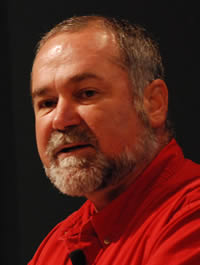
Click for Personal Page
ROBERT STEELE: It has been explained to me by a UK professor that for what Dr. Gibson was seeking to do, under the conditions and within the constraints he was obliged to respect, that the resulting PhD thesis is completely satisfactory. I accept that but I wish here to offer some brief comments in relation to how I have been so poorly depicted in this thesis, and to establish a few parameters for those who might seek to do a PhD on Open Source Intelligence (OSINT), Open Source Everything (OSE), or Multinational, Multiagency, Multidisciplinary, Multidomain Information-Sharing and Sense-Making (M4IS2) in the future. I am at this time helping a French PhD student, and I welcome others — over 20 war college and master's students have received my help over the years and I have never, ever, refused to help any student of any age. I have one high-schooler right now that is already the equal of any non-PhD national analyst I have ever known.
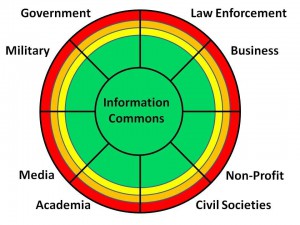
Over 750 international practitioners have spoken to the international conference on “National Security & National Competitiveness: Open Source Solutions,” offered from 1992 to 2006, and virtually without exception, their prepared remarks and graphics have been and remain online as a permanent public reference. Over 30,000 pages are permanently archived at www.oss.net, more easily accessed via Phi Beta Iota the Public Intelligence Blog, see especially Access Archive Tables). For all that is not in this dissertation by Dr. Gibson, see Historic Contributions (253) using the Directory of Historic Contributions to scan and access.. Outside of Dr. Gustavo DIAZ Matay in Spain and a handful of Nordic and Dutch researchers, no academics (and virtually no practitioners) have actually mastered the nuances of OSINT. In my view, it is not possible to achieve any degree of academic understanding without actually reviewing these historic international contributions from across the eight tribes, and interviewing an appropriate number of them directly.
As BGen Jim Cox, CA (Ret) has recently observed, none — not in NATO, not in PfP, not in EU, certainly not in the Americans — have made the jump from doing Open Source Information (OSIF) to doing Open Source Intelligence (OSINT), i.e. decision-support. To this I would add that all — across all eight tribes — are even further removed from the new new thing, the combination of Open Source Everything (OSE) and M4IS2 (Multinational, Multiagency, Multidisciplinary, Multidomain Information-Sharing and Sense-Making). My most recent thinking including my online Reflections series, is easily reviewed at 21st Century Public Intelligence 3.1 and of course in my last two and forthcoming books.
Dr. Gibson certainly sees some of the obstacles but appears to have missed the larger and more nuanced History of Opposition (14). Gibson's characterization of my vision as naive, utopian, and unrealizable — particularly in the absence of any direct communications from him to me — is disappointing. Hamilton Bean, in the published version of his book, No More Secrets, got it exactly right: OSINT is a litmus test — either you do it wrong — relying on the 2% that is online and classifying your products — or you do it right, and create a Smart Nation in the context of a World Brain and Global Game.
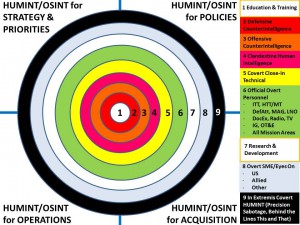
While I appreciate the several references to my work in Dr. Gibson's thesis, including The New Craft of Intelligence: Personal, Public, & Political. his selections from my extensive collection starting in 1988 are random at best, completely missing all of the key published pieces. He does not seem to recognize that with OSINT comes with 26 “new rules for the new craft of intelligence.” In other words, OSINT is transformative when properly embraced. Had he merely consulted me, he would have instantly had a dozen references of my own, and over 200 references from others that would have made his research all the more rooted in the first precept for OSINT, “cast a wide net.” Indeed, I fondly remember Dr. Stevan Dedijer, who led a Swedish delegation of 16 to my first conference, and put himself on the speaking schedule to make one key point: intelligence is about “knowing who knows,” to which I would add, OSINT is part of HUMINT, and those that forget that will fail at both. Indeed, I have been thinking for some time now, as shown in the graphic of circles, about the urgent need to integrate education, intelligence, and research. In any event, it's not enough to know who knows. You have to be able to access, harvest, and exploit what they know, and that requires the ability to go beyond one's comfort zone.
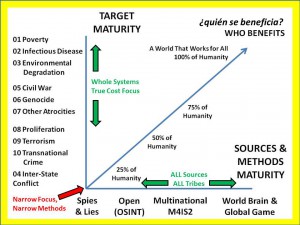
OSINT is a mind-shift, not just another discipline. OSINT changes everything — it is the foundation for hybrid public governance that is able to leverage open-source decision-support to bridge all boundaries, connect all disciplines, address all threats, expose all corruption, illuminate all true costs, and ultimately create a prosperous world at peace, a world that works for all. To aspire to anything less than collective intelligence with holistic integrity is to be an intellectual and moral dwarf. Here to the side is one of the graphics from my forthcoming chapter on “The Craft of Intelligence,” and below another graphic from the first chapter in my emerging book, INTELLIGENCE with INTEGRITY: Enabling Hybrid Governance with Open-Source Decision-Support.
My latest thoughts on the future are at 2015 Steele's New Book, 2014 Beyond OSA, 2014 Steele's Open Letter, 2013 Intelligence Future, and 2012 Academy Briefing.
I expect only two things from those who attempt future graduate level work with respect to OSINT, OSE, and M4IS2:
01 Do your homework. Do not neglect the diversity of views that I have, at great expense over time, ensured were easily found, free, online. Use all of those human sources to go beyond toward new human sources not now recognized in published work. Of course there are scattered sources here and there, but it will be a decade or more before anyone can match the diversity of contributions by 750+ speakers as I have curated and made accessible.
02 If you get in touch, I will share both my professional contacts and my knowledge of sources and methods with you.
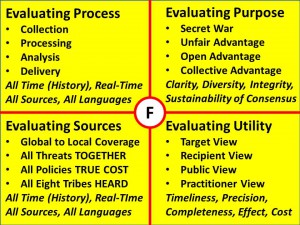
More than most realize, and as the subtitle for one of my books makes clear, I treasure clarity, diversity, and integrity. It is not for me to define anything, what I do that no one else does in actually think about how to imbue intelligence with integrity at every point in the process, the source mix, the production, and the outcome.
Having said all the above, Dr. Gibson's work is posted here for two reasons: first, because it is one of a tiny handful of PhD-level efforts and I respect all efforts, however limited they might be by design; and second, the work is a classic example of how traditional academic, government, and commercial mind-sets continue to limit themselves by remaining in the prevailing paradigm. I look forward to reading and learning from his chapter on OSINT in the forthcoming Routledge Companion to Intelligence Studies, where my own chapter on “The Craft of Intelligence” charts a new course for the third era of intelligence, the era of the Smart Nation. I yield to others on OSINT now, hopeful they will not ignore the hundreds of published contributions by professionals who in my experience represent intelligence with integrity. For myself, I will carry on with OSE and M4IS2 and I will persist in the view that intelligence without integrity is not intelligence, and that intelligence (decision-support) is the central civilizing feature, the central enabler of ethics, the central means by which We the People resist the virtual joining of fascist and socialist tendencies in what the Americans call the Administrative State….the bankrupt Administrative State.
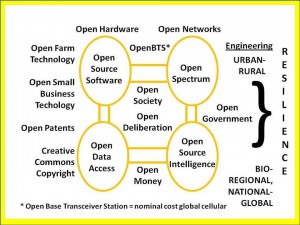
See Especially:
OSINT Literature Review, Name Association, Lessons Learned
See Also:
2000-2002 NATO OSINT Handbooks
2011 Open Source Agency: Executive Access Point
21st Century Public Intelligence 3.1
Bean, Hamilton (2011), No More Secrets: Open Source Information and the Reshaping of U.S. Intelligence (Praeger)
Olcott, Anthony (2012), Open Source Intelligence in a Networked World (Continuum)
Steele, Robert (2006), “Open Source Intelligence” in Loch K. Johnson (ed), Strategic Intelligence: The Intelligence Cycle (Praeger 2006), Volume 2, Chapter 6, pp. 95-122.
All Publications and Other Biographic Information:
Robert Steele Biography & Linked Publications



